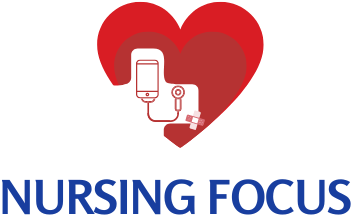The critical significance of cardiovascular nurses in promoting heart health and offering specialist treatment is highlighted by the fact that cardiovascular diseases continue to be a leading cause of mortality worldwide. We will go into the field of cardiovascular nursing in this blog, discussing the significance of comprehending heart conditions, the duties of cardiovascular nurses, and the methods they use to enhance patient outcomes.

1. The Importance of Cardiovascular Health:
Preventing heart illnesses requires maintaining cardiovascular health. A proactive strategy for promoting heart health is required due to the prevalence of these illnesses, which include coronary artery disease, heart failure, arrhythmias, and valvular abnormalities. A healthy lifestyle, stress management, and adherence to routine medical check-ups are just a few of the cardiovascular health promotion methods that nurses play a critical role in teaching people and communities about.
2. Recognize Common Heart Disorders:
It is essential to have a thorough grasp of the causes, signs, and diagnostic procedures of heart disorders in order to manage them successfully. In order to correctly diagnose heart diseases, nurses are trained to evaluate patients, carry out diagnostic procedures, and work with healthcare teams. Nurses can deliver targeted and personalized care strategies to improve patient outcomes by comprehending the complexity of these diseases.

3. Nursing Management and Interventions:
Cardiovascular nurses are pioneers in the treatment of heart disorders. They are in charge of giving prescriptions, keeping an eye on vital signs, and counselling patients about lifestyle changes including eating a heart-healthy diet, exercising frequently, and stopping smoking. By empowering patients to actively participate in their care, nurses are able to enhance treatment plans and better long term outcomes.
4. Cardiac Support and Rehabilitation:
Programs for cardiac rehabilitation are a crucial component of the recovery process for people with heart disorders. Nurses help patients emotionally, inform patients about the value of following treatment plans, and assist patients with exercise therapy and dietary advice as part of these programs. Nurses support patients' overall wellbeing and higher quality of life by addressing the mental, emotional, and physical components of recovery.

5. The Future Of Cardiovascular Nursing:
Cardiovascular nursing will change as healthcare does in the future. Technology advancements like telehealth and remote patient monitoring have created new opportunities for nurses to treat patients with cardiac conditions. The incorporation of digital health solutions improves patient outcomes and encourages self-management by making care more accessible and individualized. Cardiovascular nurses must maintain a commitment to professional growth and keep up with new evidence-based procedures in order to successfully adapt to the changing healthcare environment.

Understanding, controlling, and treating heart disorders are crucial tasks for cardiovascular nurses. Cardiovascular nurses make a substantial contribution to patient outcomes and cardiovascular health promotion through their knowledge, empathy, and patient-centered care. This blog post aims to encourage readers to recognize and support the invaluable contributions of cardiovascular nursing in battling heart diseases and enhancing the lives of patients and their families by increasing awareness of the significance of cardiovascular health, comprehending common heart diseases, and highlighting the vital part of nurses in comprehensive care.

For more nursing tips and guidance kindly check out our mfocusreview.com website
To download our Nursing Focus app, click the following link:
Android Store:
https://play.google.com/store/apps/details?id=com.nursingfocus
Apple Store:
https://apps.apple.com/app/nursing-focus/id1633014109

